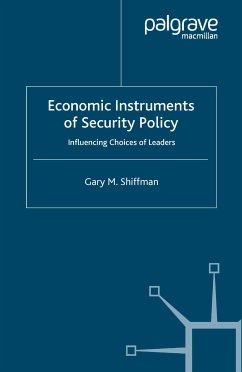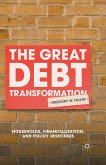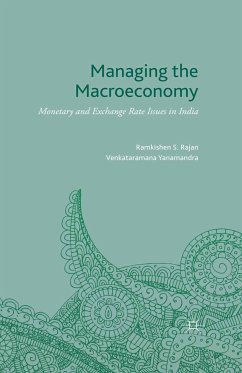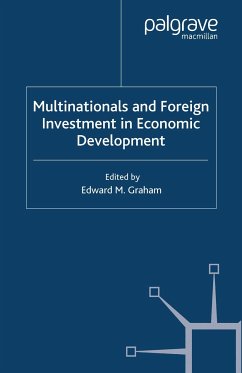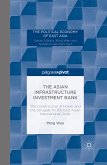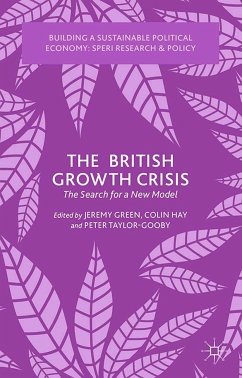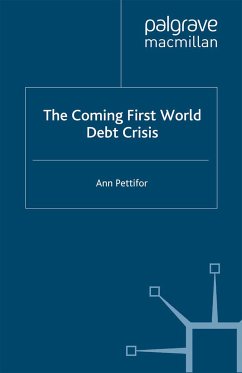Dieser Download kann aus rechtlichen Gründen nur mit Rechnungsadresse in A, B, BG, CY, CZ, D, DK, EW, E, FIN, F, GR, HR, H, IRL, I, LT, L, LR, M, NL, PL, P, R, S, SLO, SK ausgeliefert werden.
"The authors blend classic economic analysis, behavioral economics, and practical experience to present an original and realistic vision of the dynamics that affect global security decisionmaking." Secretary Michael Chertoff, former United States Secretary of Homeland Security and chairman of the Chertoff Group
"An important book, Professors Shiffman and Jochum uniquely use case studies of economic policies to animate a discussion of national security." General Michael V. Hayden, former Director of the USCentral Intelligence Agency
"In Economic Instruments, Professors Shiffman and Jochum give us an interesting and accurate account of the realities ofnational security policymaking; the economic framework provides a structure for innovation for current and future policymakers." US Senator Connie Mack
"This book is an important reminder that trade and economic engagement can lead to a more peaceful world and that economic and national security are inextricably intertwined." Ambassador Mickey Kantor, former United States Trade Representative and Secretary of Commerce.
"Professors Shiffman and Jochum bring a rare combination of practical experience and rigorous academic economics to urgent questions of national security. Specific policies such as counterterrorism, foreign aid and international law are approached ina framework that considers institutions of government and respectsindividual incentives.They have crafted an engaging book that we'd like to see our policymakers reading on airplanes." Eli Berman, University of California San Diego, author of Radical, Religious and Violent: The New Economics of Terrorism
'Shiffman and Jochum's important book illuminates the levers some open, many hidden, all subject to interpretation that drive the decision-making behaviors of individuals within institutions and systems. Their insights suggest that in a very real sense economic security is national security and vice versa, and that an economic approach to the analysis of decision-making has much to offer scholars, leaders and practitioners in the field.' David J. Kilcullen, former Special Advisor for Counterinsurgency to the U.S. Secretary of State and Senior Counterinsurgency Advisor to General David Petraeus



